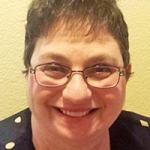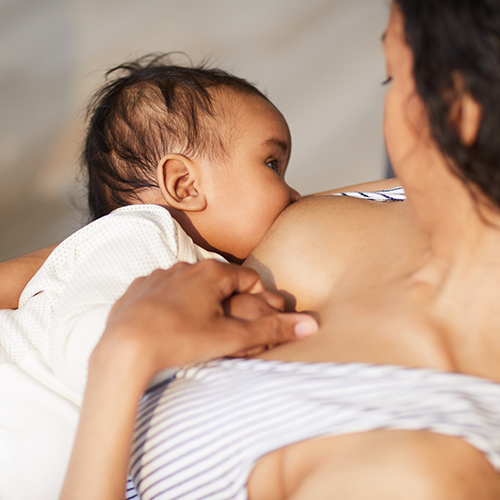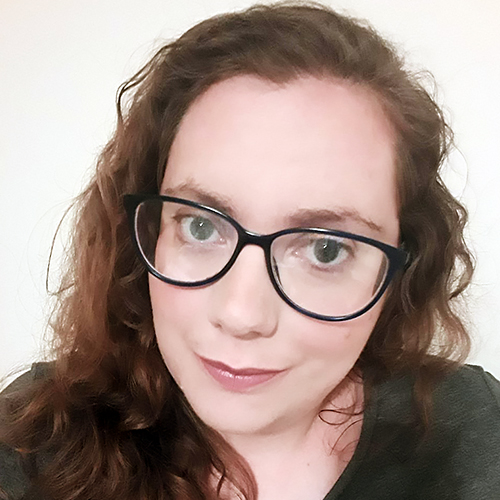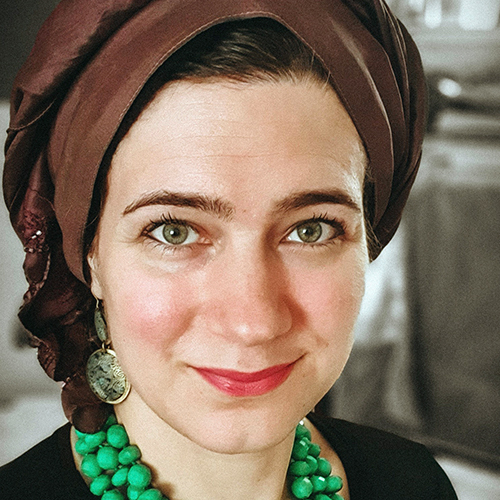 Lactation & Breastfeeding Online Course(s) & Continuing Education
Lactation & Breastfeeding Online Course(s) & Continuing Education
Access the latest clinical skills and research for Lactation & Breastfeeding for professional training. These Lactation & Breastfeeding online courses provide practice-changing skills and valuable perspectives from leading global experts. This Lactation & Breastfeeding education has been accredited for a variety of CEUs / CERPs and can be accessed on-demand, at your own pace.
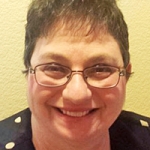

Debbie Albert, PhD, BSN, IBCLC, is a full time lactation consultant at UC Davis Med Center--working with all facets of their lactation service; including maternity floor, level IV NICU, pediatrics, PICU, and Employee Breastfeeding Support Program. She is also a prenatal instructor with their patient education program, nursing staff educator, and chairs the UCD Breastfeeding Task Force and the UCD Breastfeeding Support Program Committee. She received an Employee Excellence Award June, 2013 and June, 2015, and a Nursing Excellence Award in May, 2016. In addition, UC Davis programs have received IBCLC Lactation Care Awards and Sacramento Coalition and California State Coalition Breastfeeding Awards. Debbie has lactation experience in Florida, Texas, and California. She is Member of the LEAARC Board, a member of ILCA’s Equity Committee, and UCD Status of Women Committee. She is married to Dan Albert for 33 years, and has two sons, Josh (28), and David (24).
Raynauds is an illusive condition that tends to be confused with other conditions, misdiagnosed, and consequently rarely treated--causing the breastfeeding dyad to suffer. This program provides a review of the symptoms, medical and lactation resources, and clinical applications that facilitate most the effective treatment/comfort for the patient.

View Details / Enroll
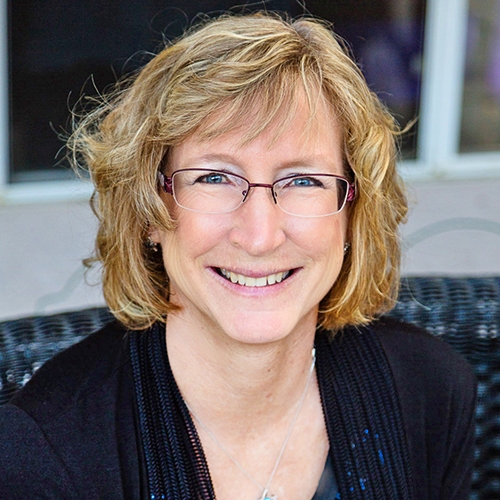

Lisa Marasco has been working with breastfeeding mothers for 35 years and has been Internationally Board Certified since 1993. She holds a Master’s degree in Human Development with specialization in Lactation Consulting and was designated a Fellow of ILCA in 2009.
Lisa is co-author of Making More Milk: The Breastfeeding Guide to Increasing Your Milk Production, a contributing author to the Core Curriculum for Interdisciplinary Lactation Care, and a Cochrane Collaborative author. She is employed by WIC of Santa Barbara County while she continues to research, write and speak. In addition, Lisa is affiliated with La Leche League of So. Calif/Nevada, and serves on the Breastfeeding Coalition of Santa Barbara County.
Topic: Deciphering the Lactation Curve - [View Abstract]
Topic: Getting a Better Grip on Prolactin - [View Abstract]
Topic: Recognizing When Things Are Heading South - [View Abstract]
Topic: The Mysterious Milk Ejection Reflex - [View Abstract]
Breastfeeding is normally a robust process, but sometimes mothers and babies end up in a gray area where your gut isn’t sure that everything is going to be okay. When low milk production concerns present, where do you start? Is it real or perceived? Delayed, secondary or primary? Which came first, the chicken or the egg? This session walks through the assessment process to determine whether a problem exists and what the cause of a low milk supply might be.
View Details / Enroll
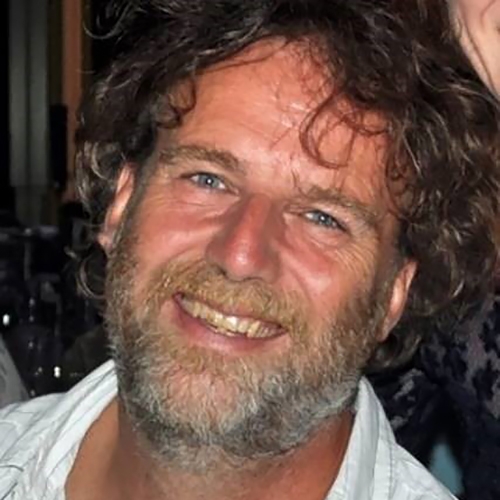
Reducing SIDS Risks Whilst Promoting Breastfeeding

Peter has a background in Medical Statistics and a particular interest in infant and childhood epidemiology. Born in Manchester, England, he studied Mathematics (BSc Hons) and Medical Statistics (MSc) before moving to Bristol where he completed his doctorate (Epidemiology of Sudden Infant Death Syndrome) in 1998. From his work on several major observational studies he is a recognised expert with over 100 publications in the SIDS field and was made an honorary fellow and advisor to UNICEF (UK) on infant care practices in 2009. In 2014 the Queen’s Annual Prize for Further and Higher Education was awarded to the University of Bristol based on Peter and his colleague Peter Fleming’s contributions in this field. He is the elected Chair of the International Society for the study and prevention of Perinatal and Infant Death (ISPID) and chair of the epidemiological working group. He is also a senior consultant methodologist for both the University of Bristol Trials Unit and the NIHR Research Design Service. He lives with his partner Helen and two sons, Jacob & Sam, aged 19 and 21 years.
Although the evidence suggests that promoting breastfeeding will reduce the risk of SIDS, some of the other risk-reduction advice given to parents seems counter-intuitive in terms of enabling breastfeeding. This talk will take a closer look at the epidemiological evidence (or lack of it) surrounding the promotion of dummy use, putting babies to sleep in cardboard boxes, the divergence in public health approaches to hazardous sleeping environments and the impact this may be having on international SIDS rates.
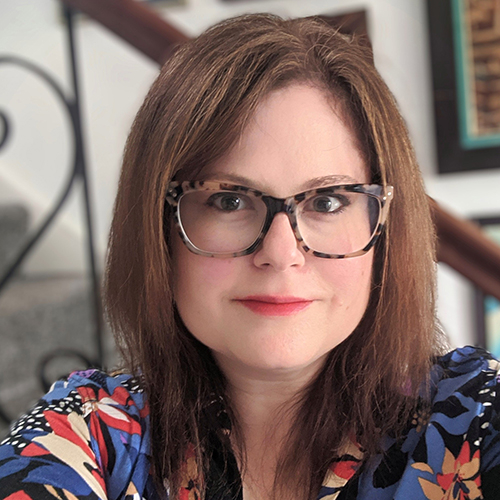
Reflections on a Breastfeeding Peer Counselor Program in Lebanon: Lessons Learned and Looking Forward

Tamara Drenttel Brand holds an MA in Near Eastern Studies from the University of Arizona and a Master’s in Public Health (MPH) from the American University of Beirut. She spent 10 years in the Middle East, where she worked as a public health practitioner, infant and maternal health consultant and an IBCLC. She has supported breastfeeding dyads from all over the world both in private practice and as a volunteer. In 2011, she founded and still actively facilitates “Mama 2 Mama Beirut Breastfeeding Support,” the largest breastfeeding peer support network in the Middle East (currently at 25k+ members). Additionally, she founded Galactablog, a professional group for lactation specialists and those aspiring-to-be (currently at 4.7k+ members) and has authored several articles for La Leche League’s monthly leader publications in both the Middle East and Ireland.
She is currently an international speaker on the topics dealing with breastfeeding in the Middle East, innovative lactation teaching strategies, working in resource-scarce settings, providing culturally sensitive lactation support, developing and implementing peer counselor training programs, mast cell disease and other related topics. Due to her own chronic health conditions, she has a special interest in educating others about mast cell disease and supporting those with chronic illnesses. She currently resides in a seaside village in Ireland with her family.
Topic: Contextualizing Breastfeeding in Lebanon - [View Abstract]
Topic: Lactation Education Outside the Box: Innovative Teaching Strategies to Engage Your Audience - [View Abstract]
Topic: Mast Cell Diseases and Lactation Care in the Post-Covid Era - [View Abstract]
Topic: Providing Culturally Sensitive Support for Breastfeeding Muslim Families - [View Abstract]
Topic: Reflections on a Breastfeeding Peer Counselor Program in Lebanon: Lessons Learned and Looking Forward - [View Abstract]
Breastfeeding rates are exceptionally low in Lebanon. Only 40% of mothers exclusively breastfed through the first month and 2.4% continued to exclusively breastfeed between 4 and 5 months. In 2012, I developed, implemented and evaluated a pilot Breastfeeding Peer Counselor (BPC) Training Program in Beirut, Lebanon. I chose this format since BPCs are adaptable to local contexts and studies have shown that that improve rates of breastfeeding initiation, duration, and exclusivity in a variety of settings and across diverse populations.
The program successfully trained 8 BPCs and led directly to the establishment of the largest mother-to-mother peer breastfeeding online support network in the Middle East (over 11,000 members to date). This presentation will provide participants with the knowledge to develop, adapt, and implement their own BPC Training programs suited to their local context. In addition, this presentation will reflect upon ethical considerations of such programs and will offer guidance on the process of program evaluation. This will allow participants to identify their own program’s strengths and weaknesses, which can improve the effectiveness of subsequent organizations.

View Details / Enroll
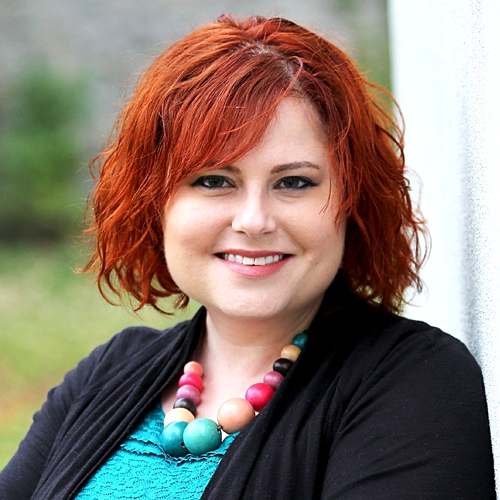
View Details / Enroll
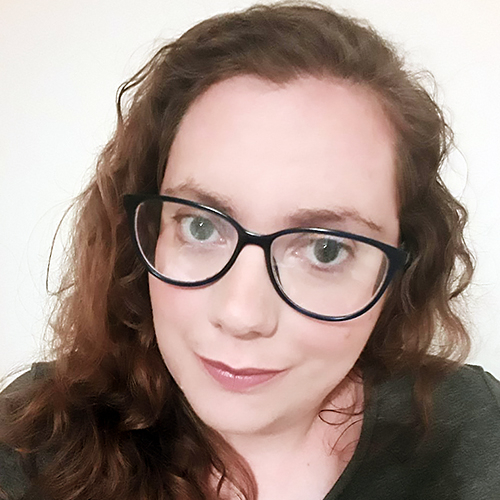

Lucy is an International Board Certified Lactation Consultant (IBCLC) Holistic Sleep Coach (HSC), public speaker, and author on the topic of lactation. She is also a qualified counsellor, child and is qualified in child development and child psychology.
Lucy runs a small but thriving Private Practice based on the South Coast of the UK but sees clients internationally. As a single mother of two boys who were hard to breastfeed, and as someone with ADHD, Lucy truly understands the highs and lows of parenthood both for neurotypical families and those who may have additional challenges.
Lucy’s approach is strongly underpinned by the belief that parents are the only true expert on their child, and that parental instinct is rarely wrong. Lucy uses listening and counselling skills first and foremost in her work, and prides herself on striving to provide a safe and inclusive space for everyone.
Topic: When Baby Says No: Assessment and Management of Breast and Bottle Refusal - [View Abstract]
Breastfeeding rates in the UK are still incredibly low, and around 80% of mothers say they wanted to breastfeed for longer than they did. Because of this, more people are beginning to talk about relactation, but the process is filled with myths, questions, and challenges. This talk will take you through why people want to relactate, including the grief and shame they may be experiencing following a difficult breastfeeding experience. We will talk about how the mother can surround herself with support and why this is so important. We will also look at supporting the baby to return to the breast, pumping tips which can help the mother to succeed, and we will discuss the risks and benefits of galactagogues - including the issues with the lack of comprehensive studies on this topic.

View Details / Enroll


Annet Mulder became interested in breastfeeding when she became a mother in 2000. During and because of her own breastfeeding experiences, in 2002 she became a volunteer at the Dutch breastfeeding organisation. In 2008 she passed her exam and started working as an IBCLC in a BFHI hospital in the Netherlands. In 2011 she started her private practice. Annet has spoken on several symposia and conferences. Teaches different subjects to lactation consultants in training and is vice president at the Dutch Association of IBCLC’s. (NVL)
If a woman wants to induce their milk supply after a separation or interruption of breastfeeding, she needs support. A lot of support! There are different angles to look at; latching on again and bringing back a sufficient milk supply. But success is not guaranteed…With dedication and preparation, breast-feeding without pregnancy (induced lactation) might also be possible. Annet will discuss different options and will use her experiences with mothers in this topic.
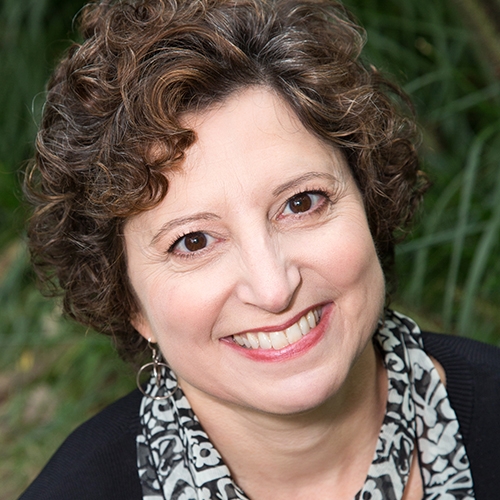
ReLATCHtation: Transitioning the Exclusively Bottle-fed Baby to Nursing

Alyssa has been helping parents and babies with breastfeeding since 2002, first as a La Leche League Leader and since 2009 as an International Board Certified Lactation Consultant.
Alyssa works in private practice serving clients worldwide, primarily through telehealth. She is the author of Breastfeeding Without Birthing: A Breastfeeding Guide for Mothers Through Adoption, Surrogacy, and Other Special Circumstances and a professional supplement to the book, The Breastfeeding Without Birthing Professional Pack online training.
Alyssa has authored articles for The Journal of Human Lactation: The Three Step Framework for Inducing Lactation and Successful Co-Lactation by a Queer Couple: A Case Study. She has also authored articles for La Leche League’s Leader Today and Breastfeeding Today magazines, and Adoptive Families magazine. She is an international speaker on the topics of inducing lactation, relactation, and other related topics. Alyssa is the proud mother of three breastfed children, two by birth and one by adoption. She lives in St. Louis, Missouri, USA.
Topic: Demystifying Inducing Lactation: How Lactation Happens Without Pregnancy and Birth - [View Abstract]
Topic: ReLATCHtation: Transitioning the Exclusively Bottle-fed Baby to Nursing - [View Abstract]
Topic: Supplementation: A Goldilocks Dilemma - [View Abstract]
Topic: The Proficient Pumper - [View Abstract]
Newborn babies are hardwired for breastfeeding: their newborn instincts direct them to latching at the breast/chest. But what about older babies who are currently exclusively bottle-feeding – can they learn to nurse too? A birthing parent may wish to initiate or resume breastfeeding after choosing not to breastfeed or discontinuing breastfeeding. An adoptive or foster parent may be placed with an older baby or toddler whom they wish to nurse. With patience, persistence, support, and some tools and tricks, it can be possible. This presentation discusses how to know if baby is ready to breastfeed, setting the stage for success, and the process of gentle transitioning from bottle to breast/chest.

View Details / Enroll
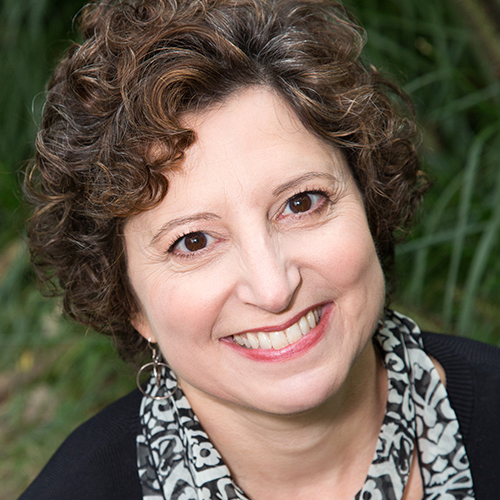
View Details / Enroll
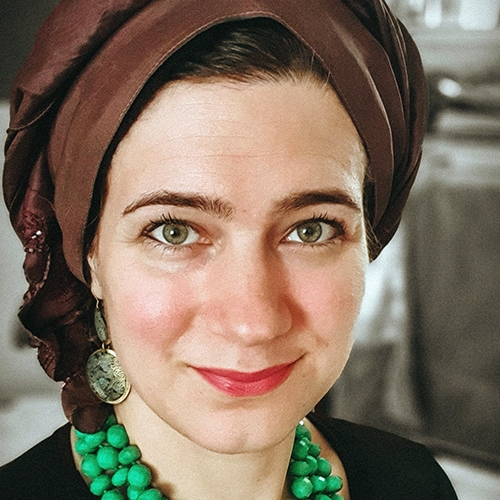
Research Ethics & Infant Feeding: How to Utilise the Four 'D's of a Brief Assessment

Zainab Yate is a Biomedical Ethicist, with a specialist interest in infant feeding. Zainab is Vice Chair and named qualitative lead on a paediatric flagged Research Ethics Committee Panel for the Health Research Authority (HRA) in the UK, reviewing research protocols for over a decade. Zainab's previous working background is in Public Health and Commissioning the National Health Service (NHS) in the UK. She had also been a volunteer breastfeeding peer supporter with the NHS for a number of years, is the owner-author of the resource site for mothers and healthcare practitioners on Breastfeeding / Nursing Aversion and Agitation and author of "When Breastfeeding Sucks".
Topic: Breastfeeding / Nursing Aversion and Agitation (BAA) in breastfeeding mothers - [View Abstract]
Topic: Research Ethics & Infant Feeding: How to Utilise the Four 'D's of a Brief Assessment - [View Abstract]
Research ethics institutions protect the rights, safety, dignity, and well-being of research participants, and also have a duty to ensure ‘good’ research. Conducting poor research is unethical, and there are many studies in the field of breastfeeding and lactation that have been challenged when published, simply because their findings and results are, at best, incorrect. Proper definitions, project design and industry conflict of interest are important factors, and these can be critiqued and challenged at the ethical review stage.
Participants will learn how to use the method of the '4 Ds of a Brief Assessment' to scrutinise the research questions, definitions of words used, disclosures and even the research methodology to decide if a study will have both scientific and ethical merit in the field of breastfeeding and lactation. If you are a donor, an applicant, a manager or a researcher you need to be aware of the process of ethical review of research protocols, the possibility of specialist review, and also of how to sift through published studies that have questionable study designs, and the findings.
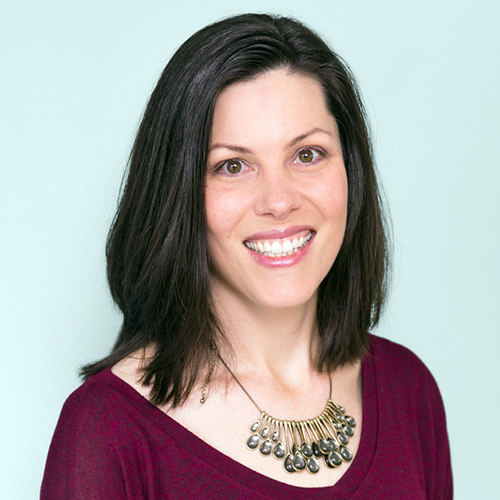

Cecília Tomori is Associate Professor and Director of Global Public Health and Community Health at the Johns Hopkins School of Nursing with a joint appointment at the Johns Hopkins Bloomberg School of Public Health. She is a Hungarian American anthropologist and public health scholar whose work investigates the structural and sociocultural drivers that shape health, illness and health inequities. Dr. Tomori is an internationally recognized expert on breastfeeding, infant sleep and maternal child health.
During the COVID-19 pandemic, she has supported numerous organizations focused on maternal child health and health equity and advocated for equitable pandemic policies. She has authored three books on breastfeeding and reproduction, and published numerous articles on a range of public health and anthropological topics.
Topic: Resolving Cultural Conflicts in Nighttime Breastfeeding and Infant Sleep - [View Abstract]
Nighttime breastfeeding and proximate mother-infant sleep play a crucial role in sustaining lactation but present challenges for parents in settings where solitary infant sleep is the norm, and bedsharing is viewed as controversial and inherently dangerous. While separate parent-child sleep arrangements are a relatively recent cultural invention, they have become the dominant cultural norm, which also shapes medical infant sleep guidance in the U.S. and other similar settings. Recent breastfeeding promotion efforts, however, conflict with these cultural and medical imperatives for separate sleep. As more parents breastfeed, they find themselves falling asleep next to their babies. Some may fall asleep on unsafe surfaces in their attempt to avoid bedsharing, while others regularly bedshare in secret to avoid social stigma and other repercussions. To ensure both safety and wellbeing for infants and families, an integrated approach to nighttime breastfeeding and infant sleep will be recommended that incorporates evolutionary and cross-cultural perspectives.

View Details / Enroll
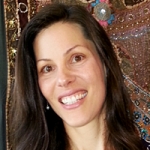
View Details / Enroll
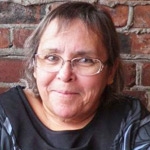
Resolving Ethical Dilemmas Using a Qualitative Study and Case Examples

Joy Noel-Weiss RN IBCLC is an assistant professor in the School of Nursing, Faculty of Health Sciences, University of Ottawa. Dr. Noel-Weiss researches breastfeeding and human lactation. Professor Noel-Weiss' doctoral research study was titled Relationship Between Intravenous Fluids Given to Women During Parturition and Their Breastfed Newborns' Weight Loss. Her Masters' research was a randomized controlled trial testing a prenatal breastfeeding workshop designed to increase maternal breastfeeding self-efficacy. For future research, Dr. Noel-Weiss is developing tools to measure infant feeding patterns and to measure clinicians' confidence in their ability (i.e., their self-efficacy) to support individuals who choose to breastfeed.
In addition to these quantitative studies, Dr. Noel-Weiss recently completed qualitative research about ethical dilemmas and lactation consultants and about mothers' experiences using baby scales in their homes. Currently, Dr. Noel-Weiss works with a research team as the principal investigator on a research study titled Transmasculine Individuals' Experiences with Pregnancy, Birthing and Feeding Their Newborns. The study is funded with an operating grant from the Canadian Institutes of Health Research - Institute of Gender and Health.
Dr. Noel-Weiss chairs the International Lactation Consultants Association's Ethics and International Code Committee and co-chairs the uOttawa School of Nursing's working group for joint appointees and adjuncts. She has a cross appointment to the Ottawa Hospital and is a member of The Ottawa Hospital Nursing Research Work Group. Recently, Dr. Noel-Weiss became a member of the Champlain Maternal Newborn Regional Program's Breastfeeding Promotion Committee.
In this session, Professor Noel-Weiss explains and defines bioethics, principles of bioethics, and ethical dilemmas. She presents results from her research study about IBCLCs and ethical dilemmas and uses case studies to demonstrate how to identify and resolve ethical dilemmas.



